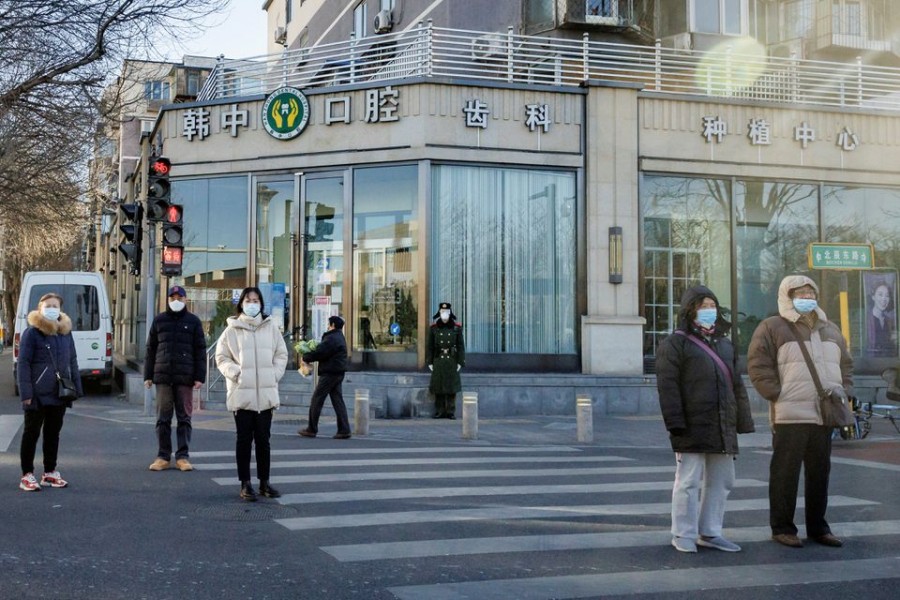China is softening its tone on the severity of COVID-19 and easing some coronavirus restrictions even as its daily case toll hovers near records, after anger over the world's toughest curbs morphed into protests across the country.
Several cities in the world's second-largest economy, while still reporting infections, are breaking with past practice by lifting district lockdowns and allowing businesses to reopen.
In making those announcements, health authorities did not mention the protests, which ranged from candle-lit vigils in Beijing to clashes with the police on the streets of Guangzhou on Tuesday and at an iPhone factory in Zhengzhou last week.
The demonstrations marked the biggest show of civil disobedience since President Xi Jinping took power a decade ago and come at a time when the economy is set to enter a new era of much slower growth rates than it witnessed in recent decades.
Despite near-record case numbers, Chinese Vice Premier Sun Chunlan, who oversees COVID efforts, said the virus's ability to cause disease was weakening, state media reported.
"The country is facing a new situation and new tasks in epidemic prevention and control as the pathogenicity of the Omicron virus weakens, more people are vaccinated and experience in containing the virus is accumulated," Sun said.
Sun also urged further "optimisation" of testing, treatment and quarantine policies.
The mention of a weakening pathogenicity contrasts with earlier messages from authorities about the deadliness of the virus.
In the past three years, China has dealt with the uncertainties of COVID-19 with a "consistent" strategy, yet "flexible" measures, Sun said, after major cities announced an easing of COVID curbs on Wednesday.
Authorities in at least seven districts in Guangzhou, a sprawling manufacturing hub north of Hong Kong, said in statements they were lifting temporary lockdowns. One district said it would allow in-person classes in schools to resume and would reopen restaurants and other businesses including cinemas.
In China's southwest, Chongqing will allow close contacts of people with COVID-19, who fulfil certain conditions, to quarantine at home, while Zhengzhou in central China announced the "orderly" resumption of businesses, including supermarkets, gyms and restaurants.
Earlier this week, national health officials said China would respond to "urgent concerns" raised by the public and that COVID rules should be implemented more flexibly, according to a region's conditions.
RE-OPENING NEXT YEAR?
Expectations have grown around the world that China, while still making efforts to contain infections in the near term, could look to re-open at some point next year once it reaches more adequate vaccination levels among its elderly.
Health experts warn of widespread illness and death if COVID is let loose before vaccination is ramped up.
Chinese stocks and markets around the world dipped initially after the weekend protests in Shanghai, Beijing and other cities, but later recovered on hopes that public pressure could lead to a different COVID approach by authorities.
Fresh outbreaks in China could weigh on activity in the near term, the International Monetary Fund said on Wednesday, but the fund saw scope for a safe recalibration of COVID policies that could allow economic growth to pick up in 2023.
China's strict containment measures have dampened domestic economic activity this year and spilled over to other countries through supply chain interruptions.
Following downbeat data in an official survey on Wednesday, the Caixin/S&P Global manufacturing purchasing managers' index showed factory activity shrank in November for a fourth consecutive month.
While the recent change in tone over COVID appears to respond to the public discontent with the strictness of the measures, authorities are in parallel seeking out those who were present at the demonstrations.
China Dissent Monitor, run by US government-funded Freedom House, estimated at least 27 demonstrations took place across China from Saturday to Monday. Australia's ASPI think tank estimated 43 protests in 22 cities.


